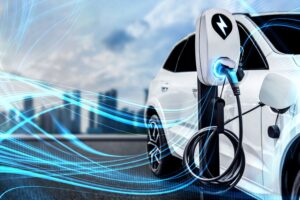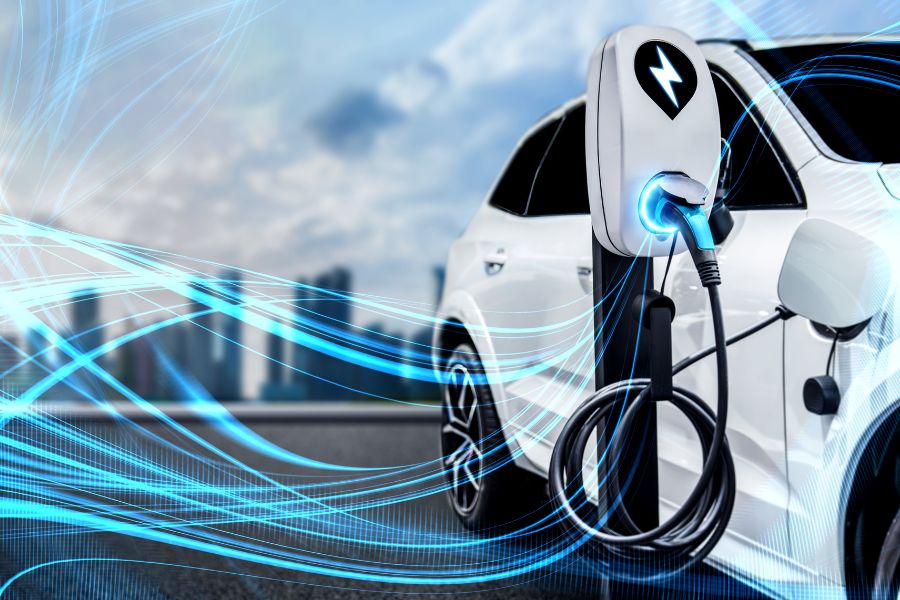In a monumental stride towards a greener future, India has embarked on an ambitious journey towards widespread adoption of electric vehicles (EVs). The nation, notorious for its congested streets and alarming pollution levels, is now spearheading a movement towards sustainable transportation. With governmental support, technological advancements, and a growing public awareness of environmental issues, the electric vehicles initiative is rapidly gaining momentum across the country.

Governmental Policies Pave the Way – Electric Vehicles
Central to this initiative are the proactive policies implemented by the Indian government. In recent years, various incentives and subsidies have been introduced to encourage both manufacturers and consumers to embrace electric vehicles. The Faster Adoption and Manufacturing of Hybrid and Electric Vehicles (FAME) scheme, launched in 2015 and subsequently extended, provides financial incentives for the purchase of electric vehicles and the development of charging infrastructure. Additionally, the government has announced plans to phase out petrol and diesel vehicles by 2030, signaling a definitive shift towards electric mobility.
Recently Updated Government Policies – Electric Vehicles
Building upon existing initiatives, the Indian government has introduced several updates to its policies to further accelerate the adoption of electric vehicles. In 2023, the FAME scheme was revamped as FAME II, with a renewed focus on promoting electric mobility and reducing vehicular emissions. Under FAME II, the government increased the incentives available for electric two-wheelers, three-wheelers, and electric buses, making them more accessible to consumers and fleet operators alike.
Furthermore, the government has announced ambitious targets for the deployment of charging infrastructure across the country. The National Electric Mobility Mission Plan (NEMMP) aims to establish a robust network of charging stations, ensuring that electric vehicle owners have convenient access to charging facilities nationwide. By incentivizing the installation of charging stations in public spaces, commercial complexes, and residential areas, the government seeks to address one of the key challenges hindering the widespread adoption of electric vehicles.

Technological Innovations Drive Progress
The success of the electric vehicles initiative also hinges on technological innovations within the automotive industry. Indian manufacturers, in collaboration with global partners, are investing heavily in research and development to enhance the performance and affordability of electric vehicles. From improved battery technology to efficient charging infrastructure, these advancements are crucial in overcoming the challenges associated with electric mobility.
Moreover, the emergence of startups dedicated to electric vehicle production has injected a spirit of innovation into the market. Companies like Ola Electric and Ather Energy are pioneering the development of electric scooters and bikes, catering to the needs of urban commuters. With sleek designs, long battery ranges, and smart features, these electric two-wheelers are becoming increasingly popular among environmentally conscious consumers.
Changing Consumer Mindsets for Electric Vehicles
A significant driving force behind the electric vehicles initiative is the shifting mindset of Indian consumers. Increasing awareness of environmental issues coupled with rising concerns about air pollution and fuel prices have prompted many individuals to consider alternative modes of transportation. The allure of electric vehicles, with their eco-friendly credentials and lower operating costs, is steadily attracting a growing number of buyers.
Furthermore, the convenience of electric vehicles, particularly in urban areas, cannot be overstated. With the proliferation of charging stations and the availability of government subsidies, the barriers to entry for electric vehicle ownership are gradually diminishing. As a result, more and more consumers are making the switch to electric, contributing to the overall momentum of the initiative.

Challenges and Opportunities
Despite the remarkable progress, the electric vehicles initiative in India is not without its challenges. The high initial cost of electric vehicles, limited charging infrastructure, and range anxiety remain significant barriers to widespread adoption. Additionally, the transition from internal combustion engines to electric powertrains necessitates significant investments in retooling and retraining within the automotive industry.
However, these challenges also present opportunities for growth and innovation. Continued government support, coupled with private sector investment, can accelerate the development of affordable electric vehicles and robust charging infrastructure. Moreover, collaborations between industry stakeholders and research institutions can drive technological breakthroughs, further enhancing the appeal and viability of electric mobility.
Looking Ahead for Electric Vehicles
As India continues to prioritize sustainability and environmental stewardship, the electric vehicles initiative is poised to play a pivotal role in shaping the future of transportation. With concerted efforts from all stakeholders – government, industry, and consumers – the vision of a clean, green mobility ecosystem can become a reality. By embracing electric vehicles, India can not only mitigate the adverse effects of pollution but also lead the global transition towards a more sustainable future.
In conclusion, the electric vehicles initiative represents a transformative moment in India’s journey towards a cleaner, greener tomorrow. With unwavering commitment and collective action, the nation is poised to revolutionize its transportation landscape and set an inspiring example for the world to follow.
